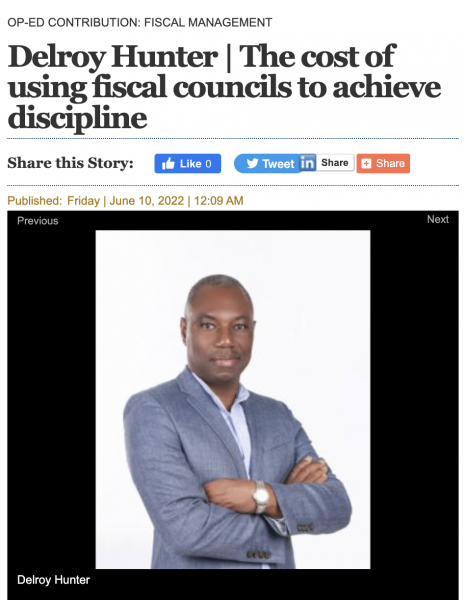
Jamaica is in the process of establishing a fiscal council, an entity tasked with assisting the government in conducting more fiscally responsible operations.
If the government emulates the best in class, then the local fiscal council should be a legally and operationally independent entity that assesses government’s forecasts of revenues and expenses, develops its own forecasts, makes possibly binding recommendations on matters of fiscal policy, and robustly communicates with the public on the issues affecting national fiscal conditions.
If a fiscal council already existed in Jamaica, perhaps its presence would have influenced the recent budget debate by tempering the opposition’s call for the government to increase its expenditure to assist Jamaicans to cope with the effects of high inflation. It could have also bolstered the assertion of the Private Sector Organisation of Jamaica, PSOJ, that additional expenditure could place Jamaica’s economic stability at risk.
It is reasonable to assume that the government is incentivised to establish a fiscal council by the expectations that a successful council could, inter alia, enhance the accuracy of the government’s forecasts, reduce fiscal deficits, lower fiscal policy uncertainty, and ease the crowding out of the private sector from the credit market as the government’s need to borrow declines.
Judging from the persistent and substantial fiscal deficits that have plagued Jamaica, and the tendency for successive governments to be less than fiscally judicious, especially prior to national elections, it might appear like a foregone conclusion that establishing a fiscal council would be all-round beneficial. However, real life tends to be more complicated. While there is emerging empirical evidence that fiscal councils achieve some of their core objectives, there is the need for a cautionary note on their adoption.
Financial Development
In research conducted for my recently concluded Fulbright Scholarship at the UWI Mona School of Business and Management, I investigated whether the adoption of fiscal councils affects financial development of the adopting country’s financial sector.
Financial development is assessed along three main dimensions of financial markets. Access reflects the ease with which residents can obtain the services generally offered by financial markets and is captured by, for instance, the number of bank branches or securities issuers relative to the population.
Article & Photo from: The Gleaner